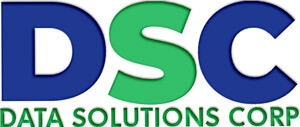Frequently Asked Questions
Have questions?
See what others have asked, or ask a new one!
General Questions
Answer: Hospital inventory services involve the systematic counting and management of medical supplies and equipment to ensure optimal stock levels and prevent shortages.
Answer: We recommend conducting inventory counts annually, with more frequent checks for high-turnover items to maintain accuracy and efficiency.
Answer: Our services are distinguished by our team of highly trained, full-time inventory specialists who provide tailored solutions to meet the specific needs of each hospital.
Answer: We utilize a combination of advanced techniques and meticulous manual counting to ensure precise and reliable inventory data.
Answer: Yes, we offer flexible solutions that can be adapted to special projects, ensuring that all your inventory management needs are met.
- Cost Reduction:
- Optimizing stock levels minimizes waste from expired or unused supplies.
- Accurate inventory data enables better demand forecasting, preventing overstocking and unnecessary purchases.
- Budgeting Accuracy:
- Precise inventory records provide a clear picture of supply usage, facilitating accurate budgeting and financial planning.
- Optimized purchasing: knowing what is on hand, prevents unneeded purchases.
Full Question: What is the benefit of medical inventory management? I mean, we get by with what we are already doing. Sure there are problems. But why would I want to hire an outside company to improve what we are already doing?
Answer: Most hospitals that conduct “In-House” inventories do so for one purpose only – to check off an accounting requirement at year end. Assigning each department the task of reporting back what they have is like “putting the fox in charge of the hen house!” Each department counts (or estimates) what they have using rules they create. There is no standardization and very little accountability.
DSC can provide you with accurate data that can be used to quantify improvement potentials. Our data will show you where your supply chain strengths and weakness are, which will lead to increased efficiencies. You will also get the detailed accurate financial data for your accounting needs in a fraction of the time usually found when conducted In-House. Our focus is on your inventory data so that your staff can focus on their primary duties – patient care.
Full Question: I am the general manager of a small clinic in Virginia with 5 general practice rooms and one exam and simple procedure room. We don’t have a large inventory, but we could use some help straightening things out. We had to cancel a procedure last month due to the item in-stock expiring causing the patient unnecessary pain that we should have been able to help with. We need to get a handle on this problem. What can you do for a small clinic in our situation?
Answer: Proper management of your Medical Inventory Supplies will help you to do your primary job more efficiently, which is patient care. Having the right amount of supplies is crucial to your patients and your organization. This is especially true for a smaller practice such as you describe, as every dollar wasted affects your bottom line harder than it would a large facility.
DSC would recommend:
- Establish a baseline inventory. What do you have and where is it located?
- Compare quantities on hand to use needs. Establish PAR levels, re-order points, and Min-Max levels.
- Assess your risks for outdated product. Examine stock rotation compliance, look for vulnerabilities, and find solutions to fix the problem.
- Examine where supplies are stored vs. where they are used. Find efficiencies on a stock reorganization plan.
DSC can help you with all of these solutions and more.
If you need assistance, feel free to contact us anytime. Together we can work out a plan and get you help for your unique needs.
Full Question: Can I just purchase some inventory software to handle inventory management for me? What can you do for my clinic that a software system won’t or can’t do?
Answer: We fully support using Inventory Software tools to help you manage your inventory. There are many versions out there and each should be evaluated for how they fit your specific needs. However, no software will help you if you load it with bad data. In order to get reliable and helpful output, you need good baseline data. This is the most critical component of any software installation.
Once you establish an accurate baseline, you will need to maintain the data integrity. This can be maintained through periodic inventory, a cycle count program or a combination of both. If left unchecked, your software data will eventually fail you.
Full Question: If we wanted to hire DSC for a simple yet meaningful assessment of our situation, would you be amenable to that?
Answer: Yes. DSC can perform a full on-site assessment and then present you with a detailed proposal and price for you to review.
Full Question: I represent a very large hospital with 30 Operating Rooms and 7 Cath Labs. Not only that, but our inventory has not been properly counted for over 10 years with things scattered everywhere. We also need help coming up with a plan for our internal Pharmacy which is completely out of hand. Is DSC able to handle such a large project?
Answer: DSC offers a full range of services to meet all these needs. They can be scheduled concurrently or broken into components to meet your scheduling or budgetary needs. In addition, DSC has several partners that can provide software to assist with data analysis and hardware such as racks, bins, and smart cabinets to make your improvement goals a reality.
Answer: The answer depends on your motives for conducting an inventory. A yearly inventory is required by the IRS for financial reporting requirements. If Inventory management is your goal, then you should consider an interim inventory and/or cycle count program so that you can measure your needs, monitor your progress, and adjust so that you can reach your goals.
Full Question: You mention that you do special projects on your website. Can you give examples of what you mean by special projects and what the benefits are?
Answer: Examples of successful Special Project engagements conducted by DSC staff:
- Consignment Validation projects- check vendor contract compliance, analyze risks.
- Stockroom reorganizations – measure product usage, improve stockroom efficiency.
- Smart cabinet (Pyxis/Omnicell/other) cleanup, reorganization, and changeover.
- Data cleaning and forensics – examine item master issues, and recommend corrections and enhancements.
- Supply chain labor- temporary resources to cover vacations, leave of absence, or unexpected labor shortages.
- Initiate Cycle count programs and train your staff on implementation.
Full Question: If we purchased an inventory software package that helps us maintain our inventory real time, would you be able to help us manage the software?
Answer: Yes. We would start with some questions to ask your potential software vendor prior to purchasing so that you can minimize any future “Buyer’s Remorse”. All software requires accurate data before it can do anything, and we can help provide that to you. To keep your data accurate, periodic inventories and/or cycle counts need to be performed to correct errors that will naturally occur over time. As these errors are corrected, trends may become apparent that will lead to corrective measures in training and compliance.
Full Question: We already have inventory software at our hospital and pharmacy. However, our numbers are off. Not all staff use it correctly despite all attempts to get them to. Our question is, can we hire you to do physical counts for us quarterly? This will ensure that despite our staff, we can have correct inventory tracking. This will improve our yearly bottom line and ensure we have everything we need when we need it.
Answer: Yes, quarterly inventories are possible, but you must weigh the dollar cost and potential disruptions inherent in frequent counts against any benefits derived. Better to find the source of the errors by examining the data more carefully. It could be a single employee making errors that throws the entire program off. Look at how product is received. Are invoices checked? Are the proper data fields being used? Are correct Unit of Measure data applied consistently to product received, dispensed or returned? How are you accounting for recall, outdates, or spoilage in your system? DSC can help you track down the source of these issues to help you get your program working as intended.
Answer: Yes, in order to provide an accurate valuation of existing inventory, we will need your inventory data files to clean and prepare for a point of entry validation count and data collection.
Answer: Reports listing unpriced items and items not on file are provided daily throughout the course of the inventory. Final reports, including in-depth analysis of the entire inventory are sent within 3 business days of the count’s completion. Reporting for perpetual inventory areas are usually provided the same day and not more than 24 hours. An Executive Summary is provided approximately 15 days after the final report delivery.
Answer: For a medium-sized hospital, this typically takes 1-2 days. We do, however, staff to suit your needs.
Answer: An accurate baseline needs to be used to perform cycle counts throughout the year by an outside service and/or full wall-to-wall cycle at least 2 times each year and until an accurate perpetual system can be deployed using outsiders. Never deploy internally when you can have experts do it, allowing your staff to continue to improve other processes. Once all pieces are in place, an internal process can be used. You will need to continue to “measure, monitor, and adjust ®”.
Answer: Yes. The In-Depth Analysis report allows you to view your inventory in various ways.
- All items within each department and cost center
- All items within each storage area and procedure room
- All items that are found in each section (e.g., Suture Tree)
- All items that are found in multiple locations
- All items by manufacturer
Answer: Yes, DSC captures both consigned and owned inventory. Our proprietary software allows for consigned items to be flagged in our system which automatically segregates this information within the analysis report. When viewing your analysis report, there will be different fields for consigned inventory and owned product.
Answer: DSC works with all of our customers in updating pricing and not on file (NOF) information. We would be pleased to apply pricing, Unit of Measure (UOM,) and NOF information. When this information is applied, DSC will deliver an updated analysis report.
Contact us for a Free Consultation Today
Benefits of Hospital Inventory Services
Cost Reduction:
- Optimizing stock levels minimizes waste from expired or unused supplies.
- Accurate inventory data enables better demand forecasting, preventing overstocking and unnecessary purchases.
Budgeting Accuracy:
- Precise inventory records provide a clear picture of supply usage, facilitating accurate budgeting and financial planning.
- Optimized purchasing: knowing what is on hand, prevents unneeded purchases.
Ensuring Availability of Critical Supplies:
- Accurate inventory prevents stock-outs of essential medications and devices, ensuring timely patient care.
- It guarantees that necessary supplies are on hand during emergencies.
Preventing Use of Expired or Recalled Items:
-
- Regular inventory checks allow for the removal of expired or recalled products, minimizing risks to patient health.
- This is especially crucial for pharmaceuticals and time-sensitive medical devices.
Streamlined Workflow:
- Efficient inventory management reduces the time spent searching for supplies, allowing healthcare professionals to focus on patient care.
- It improves organization and accessibility of medical supplies.
Improved Tracking and Traceability:
- Inventory systems enable accurate tracking of supplies, facilitating recalls and ensuring regulatory compliance.
- It helps to quickly locate needed items.
Regulatory Compliance:
- Helps to keep up with the often strict regulations that medical facilities must adhere to.
- Accurate inventory data is crucial for emergency preparedness, ensuring that hospitals have adequate supplies to respond to disasters or surges in patient volume.
Benefits of Hospital Pharmacy Inventory Services
Improved Stock Management:
- Offers critical data to refine reorder points and quantities, helping to prevent stockouts of essential medications (enhancing patient care) and reduce carrying costs associated with overstocking.
Identification of Process Weaknesses:
- Can highlight potential flaws or inefficiencies in receiving, storage, security, dispensing, or record-keeping procedures.
Enhanced Accountability:
- Reinforces staff responsibility and awareness regarding inventory control and management practices.
Improved Inventory Accuracy:
- Reconciles the physical quantities of medications on hand with the amounts listed in the perpetual inventory system, ensuring records are precise.
Identification of Discrepancies:
- Uncovers variances caused by theft, diversion, damage, dispensing errors, receiving mistakes, or unrecorded transactions, allowing for investigation and correction.
Optimized Expiration Date Management:
- Identifies medications approaching their expiration dates, enabling proactive management to minimize waste through timely use or return, and ensuring expired drugs are removed from circulation.
Detection of Spoilage or Damage:
- Allows for the physical inspection of stock to identify any compromised products due to improper storage, temperature fluctuations, or physical damage.
Accurate Financial Valuation:
- Provides the exact value of the pharmacy’s inventory assets at a specific point in time, crucial for accurate financial statements and accounting.
Enhanced Regulatory Compliance:
- Fulfills legal, state board, DEA (for controlled substances), and potentially 340B program requirements for medication tracking, accountability, and auditing.
Informed Budgeting and Forecasting:
- Supplies accurate data on inventory levels, value, and turnover rates, which aids in more precise budget planning and future purchasing forecasts.
Contact us for a Free Consultation Today
Benefits of Laboratory Inventory Services
Precise Unit of Measure (UoM) Capture:
- Overcomes confusion and ensures accurate UoM recording at the point of capture using specialized AIMS™ software, leading to reliable data.
Accurate Inventory Counts:
- Delivers precise counts even for difficult-to-inventory lab items often overlooked.
Consistent Reporting:
- Provides data in consistent formats, making analysis easier.
Identification of Inconsistencies:
- Captures discrepancies, such as variations in reagent listings, improving data quality.
Accurate Financial Valuation:
- Ensures the correct monetary value is assigned to complex lab inventory, improving the accuracy of financial statements.
Reliable Financial Data:
- Provides trustworthy data crucial for budgeting, cost allocation, and financial reporting related to lab operations.
Expertise in Lab Environments:
- Utilizes inventory specialists specifically trained for clinical laboratory settings (Pathology, Microbiology, etc.).
Adherence to Safety Protocols:
- Ensures counts are performed safely, respecting all necessary lab safety procedures.
Timely Results:
- Delivers inventory data and reports quickly (within 3 business days), enabling prompt analysis and decision-making.
Handles Complex Inventory:
- Effectively manages inventories that are typically difficult or overlooked by non-specialized staff/services.
Comparative Analysis:
- Offers insights by comparing inventory data over time or across labs.
Standardization Support:
- Assists in standardizing supplies or processes based on inventory findings.
Optimization Program Support:
- Provides data and resources to aid lab optimization initiatives.
Benefits of Warehouse Inventory Services
High Inventory Accuracy:
- Achieves unparalleled accuracy for vast and varied stock within the warehouse environment.
Improved Data Foundation:
- Benefits from rigorous Item Master file cleansing prior to the count.
Real-time Data Validation:
- Ensures data integrity through item capture and validation in real-time using AIMS™ software.
Technology-Driven Accuracy:
- Leverages proprietary software (AIMS™) for efficient and precise data capture.
Dependable Data Provision:
- Delivers reliable inventory data essential for informed decision-making.
Process Transparency:
- Offers on-demand audit trails during the count for verification.
Accurate Consignment Management:
- Provides verification of consignment stock, ensuring contract compliance and accurate counts (via Add-on Service).
Specialized Warehouse Expertise:
- Utilizes expert teams who understand unique warehouse challenges.
Efficient Count Process:
- Employs efficient operations tailored to the warehouse setting.
Stock Level Optimization:
- Provides foundational data needed to optimize inventory levels.
Workflow Streamlining Support:
- Delivers data that aids in improving warehouse workflows.
Increased Operational Efficiency:
- Contributes to more efficient overall warehouse operations.
Reduced Waste & Risk:
- Identifies expired or soon-to-expire products to minimize waste and associated risks (via Add-on Service).
Policy Adherence Assurance:
- Helps ensure warehouse inventory levels meet corporate or internal requirements (via Add-on Service).
Enhanced Inventory Control:
- Enables unparalleled control over warehouse inventory assets.
Strengthened Financial Oversight:
- Provides dependable data to improve financial tracking and control of supply chain assets.
Fast & Comprehensive Reporting:
- Delivers final reports quickly (typically within 3 business days) for timely action.
Swift System Reconciliation:
- Facilitates rapid reconciliation with warehouse management systems (WMS) or ERPs.
Flexible Perpetual Inventory Management:
- Offers expert handling of perpetual inventory areas, counted separately or integrated as needed.
Timely Perpetual Data:
- Ensures rapid data turnaround for perpetual counts to maintain system accuracy.
Improved WMS/ERP Accuracy:
- Contributes to maintaining the real-time accuracy of integrated warehouse/financial systems.
Enhanced System Implementation:
- Supports new WMS/ERP rollouts with clean, accurate data, maximizing ROI (via Add-on Service).
Customized Scope:
- Operates according to a precisely defined and agreed-upon scope of work (SOW).
Increased Supply Chain Confidence:
- Builds confidence in supply chain management through reliable data and processes.
Actionable Inventory Analysis:
- Delivers deeper insights through customized comparative reports (via Add-on Service).
Flexible Staffing & Project Support:
- Provides access to qualified resources for temporary staffing needs or special warehouse projects (via Add-on Service).
Contact us for a Free Consultation Today
Benefits of Special Projects Inventory Services
Staff Augmentation:
- Seamlessly supplement existing hospital staff (e.g., Materials Management) with external resources as needed.
Addresses Staffing Shortages:
- Provides immediate relief and operational continuity when internal staffing levels are insufficient.
Flexible Engagement:
- Offers resources for both short-term and long-term project durations, adaptable to specific needs.
On-Demand Availability:
- Provides access to resources when required for special projects or needs.
Cost Flexibility:
- Utilizes manageable hourly or daily rates for temporary resource allocation, avoiding permanent hiring costs.
Access to Qualified Professionals:
- Provides specialized talent, including qualified inventory specialists, auditors, consultants, and project managers.
Enables Project Execution:
- Allows the hospital to undertake and complete projects that internal staff may lack the time, bandwidth, or specific skills to perform.
Supports Diverse Initiatives:
- Offers expertise across a range of critical projects such as Par optimization, inventory optimization (Clinical, Pharmacy, Lab), OR reorganization, consignment management, ADC cleanup/updates, and barcoding.
Flexible Counting Options:
- Allows perpetual inventory areas to be counted separately from main physical inventories, fitting specific operational needs.
Timely Data Delivery:
- Submits count deliverables for perpetual areas within agreed timeframes, enabling rapid system updates.
Enhanced System Accuracy:
- Facilitates quick updates to the perpetual inventory system, supporting real-time data accuracy for better decision-making.
View Our Other Inventory Services Below

Hospital Inventories
As part of a medical inventory management solution, a physical count of clinical and pharmacy supplies is conducted at the customer’s facilities in accordance with an agreed upon scope of work (SOW). In preparation for the physical inventory, the customer’s Item Master file will be scrubbed and loaded into DSC’s proprietary AIMS™ software. During the count, each item is captured and validated at the point of entry.

Hospital Pharmacy Inventory
DSC uses a customizable approach to tailor the hospital pharmacy inventory process to your exact needs. Working with your suppliers, we will create an item master with pricing to suit the requirements of your accounting team..

Laboratory Inventory Services
Tired of inaccurate valuations from complex clinical lab inventories and confusing Units of Measure? DSC delivers specialized inventory services precisely designed for labs, employing trained experts and advanced software to ensure accuracy, safety, and reliable financial data within just 3 business days.

Special Projects
Instantly augment your team and tackle key projects without hiring permanent staff. DSC offers flexible access to qualified on-site resources, providing specialists and project managers exactly when needed to support your operations or manage initiatives your team can't.

Warehouse Inventory Services
Achieve unparalleled accuracy and unlock optimization potential within your hospital supply warehouse. Our specialized inventory services combine expert teams, rigorous data preparation, and advanced AIMS™ technology to provide the dependable, real-time data you need for confident supply chain management.
Schedule Your Consultation Today
Discover how Data Solutions Corp can streamline your hospital’s inventory management. Contact us now to schedule a consultation and learn more about our specialized services tailored to meet your unique needs.
